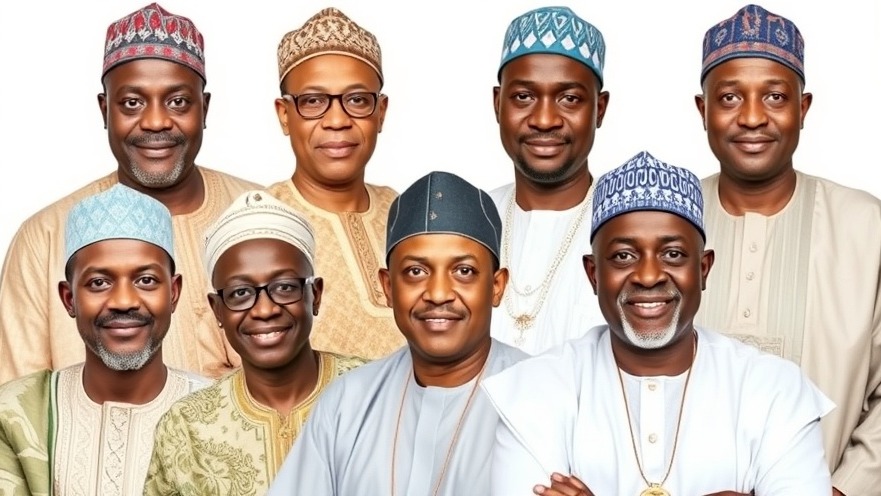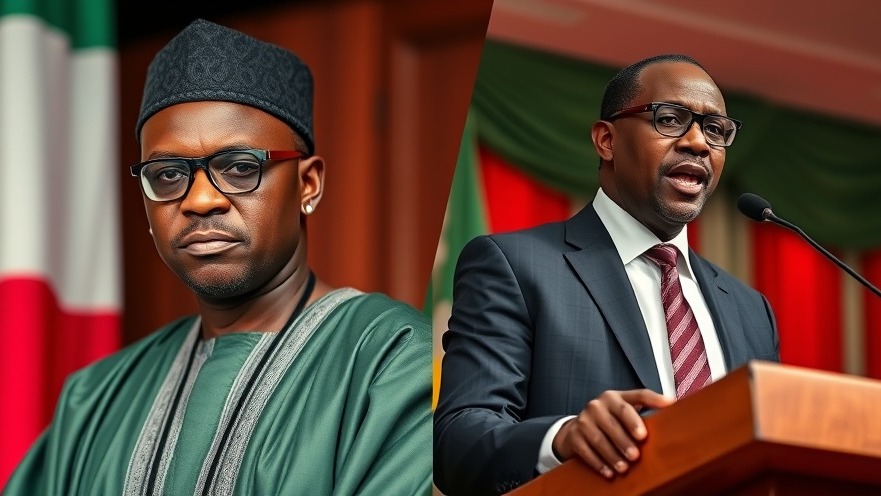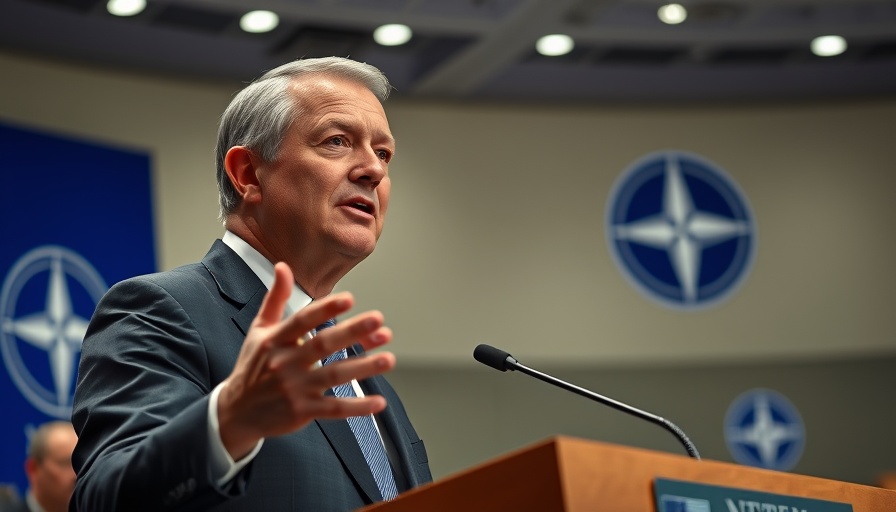
The Push for Governance: A Historical Perspective
The recent conversation surrounding the 2027 governorship elections in Ogun State, particularly focusing on the West Central district, sheds light on a historical marginalization that has persisted since the state’s inception in 1976. While the central and eastern districts have each had their share of governance, the West, predominantly inhabited by the Yai ethnic subset, has never produced a governor. This 50-year oversight has led to not just a political grievance but also noticeable underdevelopment compared to more privileged regions. With powerful conversations about equity and justice coursing through Ogun's political valleys, the citizens of West are no longer willing to wait on the sidelines.
In '2027 Elections: Will Ogun West Finally Get a Chance?', the discussion dives into the historical context of governance and development in Ogun West, exploring key insights that sparked deeper analysis on our end.
The Economic Implications of Marginalization
According to Mr. Baji Adeniji from the West Initiative, the economic vitality of the West has been stifled by systemic neglect. The region historically served as an economic corridor, significantly contributing to the state's internally generated revenue (IGR). However, recent political maneuvers have redirected vital economic initiatives elsewhere, effectively stripping West of its resources and opportunities. The implications here extend far beyond political representation; they touch the very fabric of social infrastructure and human capital development. As the people of West articulate their demands for governorship, they are fundamentally asking for equitable development—challenging the status quo that has long relegated their needs to the background.
Redefining Power Dynamics: Local vs. Executive Governance
While the roles of governors are critical, they intertwine deeply with the functions of local government and legislature—key players in the developmental narrative. The efficacy of governance in Ogun cannot solely be gauged through executive actions; legislators also play a pivotal role in bridging gaps. According to Adeniji, current local government structural issues, exacerbated by resistance from state executives, hinder swift development. The push for decentralization, accompanied by the recent Supreme Court ruling advocating for local governments to receive direct allocations, short-circuits the longstanding issue of state governors co-opting local funds. It poses the question: can real development manifest without a functional local government structure?
Navigating Future Developments: Predictions and Prospects
Looking ahead to the 2027 elections and beyond, the interaction between Old West's political aspirations and structural reforms will prove to be pivotal. Empowering local governance could not only illuminate paths for more equitable resource allocation but also foster a sense of agency among citizens. Adeniji and other stakeholders stress that success will depend on engaging actively with these structures rather than solely relying on the executive branch. The possibility for a more inclusive governmental system exists, contingent upon strategic engagement and relentless advocacy.
Counterarguments and Diverse Perspectives
While the plight of the West district is a critical narrative within Ogun’s landscape, there are also counterarguments emphasizing that developmental outcomes depend on multiple factors beyond representation alone. Critics suggest that focusing on governance or ethnicity might divert attentions from comprehensive development policy reforms needed statewide. As the discussions progress, it is essential to broaden the view beyond political representation to include policies that will ensure no region, including south-eastern zones, falls short of development imperatives.
The Call for Political Consciousness and Citizen Engagement
The dynamics leading towards the 2027 elections are urging a renewed political consciousness among the people of Ogun West. The interactions sparked by the West Initiative have illustrated how individual legislators can drive change traditionally seen as the prerogative of governors. If nothing else, Adeniji's insights highlight the necessity of citizens being more assertive in demanding fairness and justice not just from the current structures but also in electing representatives who truly reflect their needs.
In conclusion, the conversations around the 2027 elections highlight critical issues of representation, development, and the need for systemic reforms within Ogun State. As the citizens of Ogun West prepare to exert their political agency for the first time, they carry not only their aspirations but also the weight of a long-neglected narrative. The people must leverage their voices and assert their needs, paving pathways towards governance that embodies equity, justice, and development. As the 2027 elections approach, there has never been a better time to demand the change that has long been overdue.
 Add Row
Add Row  Add
Add 


 Add Row
Add Row  Add
Add 

Write A Comment